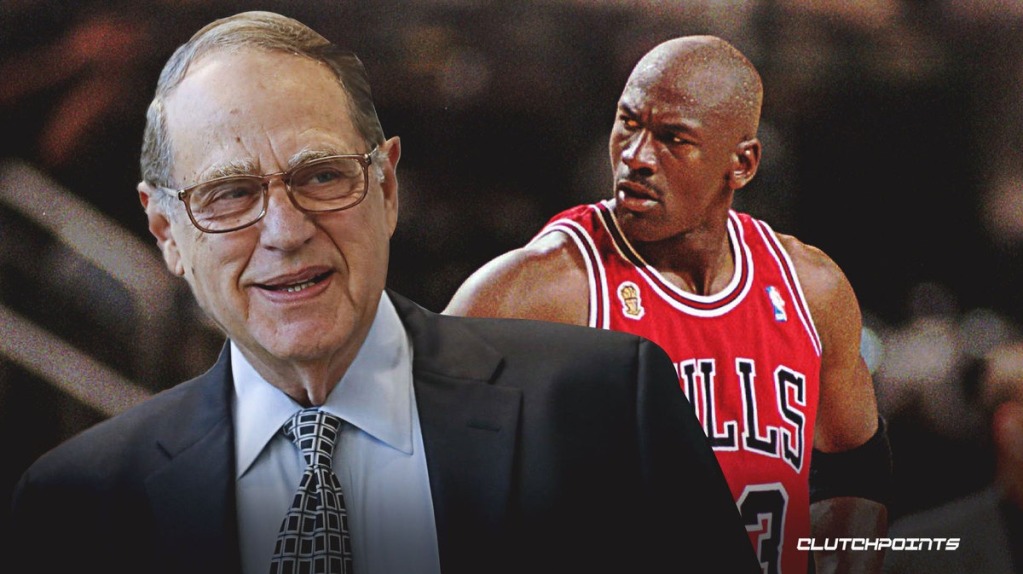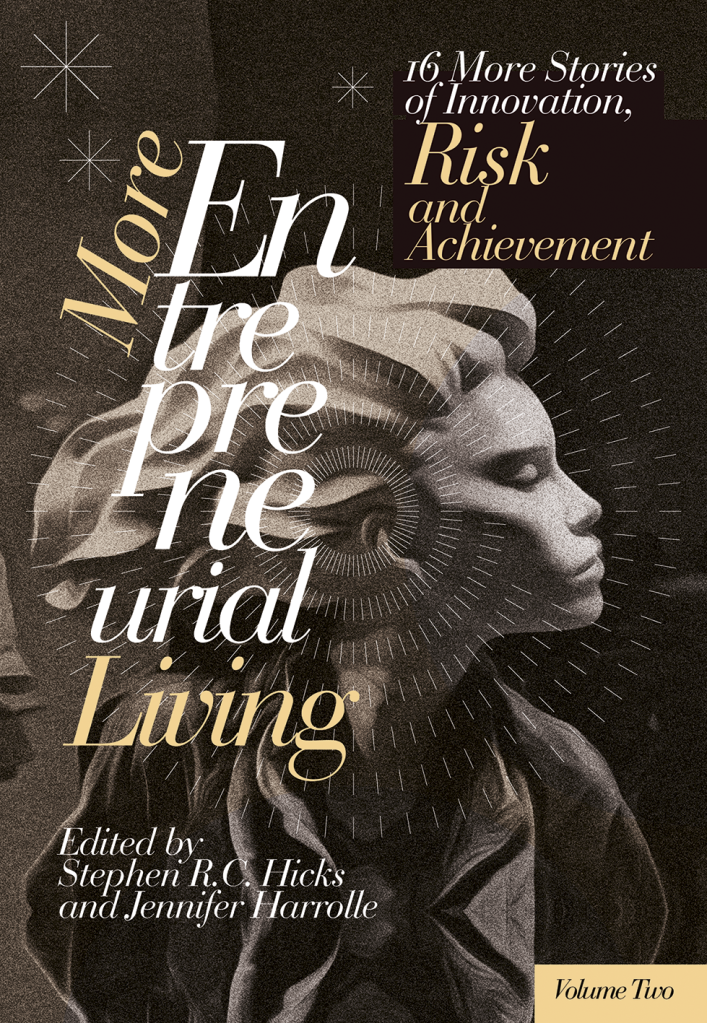
Jerry Reinsdorf, owner of the Chicago Bulls and Chicago White Sox:
“You’ve got to learn to lose. Most of the time in sports you lose. Only one team wins the World Series each year—29 of them don’t.”
In Entrepreneurial Living, edited by Stephen R. C. Hicks and Jennifer Harrolle.
In this volume of interviews with entrepreneurs from six countries and seven U.S. states, we explore the adventure—and the hard-headedness—of business.
What makes for entrepreneurial success—and failure? To what extent is flourishing a matter of ideas, or of key decisions, or of persistent action, or of character?
The sixteen entrepreneurs featured in this volume are widespread geographically as well as in the range of their endeavors—from sports to education to fashion to technology to finance to advertising to architecture to cosmetics and more.

Table of Contents:
- Jerry Reinsdorf, Entrepreneurship and Sports Management. “You’ve got to learn to lose. Most of the time in sports you lose. Only one team wins the World Series each year—29 of them don’t.”
- Steve Mariotti, Education and Entrepreneurship. “90 percent of education is giving kids a vision. They’ve got to see themselves doing something that they want to do, that’s also fun and fits into their life view. You have to find that, and every kid has it.”
- Chan Luu, Entrepreneurship and Fashion. “When my business grew to certain size, I found myself busy running my business instead of doing what I do best: designing. That was the hardest part—learning how to delegate responsibilities.”
- Enrique Duhau, Entrepreneurial Agriculture in Argentina. “The first couple of years were difficult. Then we started doing well. But we were hit by a big tornado and the silo plant got destroyed. So we decided to close down and start something new.”
- Larry Abrams, Entrepreneurial Investing. “In investing, I don’t think intelligence is particularly important. The principles behind successful investing are not difficult to understand. Many people know them, but not many people are able to practice them because the most important thing is the ability to control your emotions.”
- John Gillis, Architecture and Entrepreneurship. “Make sure that you find the kind of work that excites you. Look around. Take the time, even if something doesn’t hit you right away, it will come. The kinds of things that start your heart beating faster, your pulse racing, are what you have to pay attention to.”
- Magatte Wade, Entrepreneurship from Africa to America. “What I don’t like is that in most African countries we have more NGOs than we have small businesses. This is ridiculous. All these NGOs are doing is giving something for free. Well, who can compete against free?”
- Jay Lapeyre, Entrepreneurial Resilience in New Orleans. “Losing money helped me make some hard calls. With experience, you learn that you let the facts control and give people choices. Today I still struggle with cutting ‘good projects’ to be more effective with the best projects and initiatives.”
- Anil Singh-Molares, Entrepreneurship and Global Markets. “‘Scalding hot’ is the way I would describe dealing with Bill Gates. Brilliant, brilliant intellect, very sharp, very focused, very impatient with arguments that he considered weak or poorly thought-out, and he could skewer you if you weren’t well-prepared. But a wonderful education.”
- Judy Estrin, Innovation and Entrepreneurship. “I compare great leadership to great parenting. Ethics and values, whether you’re raising kids or building cultures and companies, are not dictated by little notes on a card—they’re set by example.”
- John Allison, Entrepreneurial Banking. “A fundamental commitment in our mission is to help our clients achieve economic success and financial security. We believe in the trader principle: value for value. We have a moral obligation to help you be successful, and I expect to make a profit doing it.”
- William and Wilson Ling, Entrepreneurship in Brazil. “Most important: be prepared to fail. Chaos rules the universe. Failure is the natural outcome. Human action, creativity, management skills, courage, and resilience are necessary ingredients for success.”
- John Chisholm, Entrepreneurship and Customer Satisfaction. “I knew that Silicon Valley was the place for me the first time I drove through it, among the hundreds of high-tech companies. HP was then still small enough that new employees were invited to meet with Bill Hewlett or Dave Packard.”
- Bernardita Jensen, Entrepreneurship and Montessori Education. “It is very important to teach responsibility for their actions. The students clean the school and put the materials in order. This is a revolutionary idea because it seems a waste of time, but ’lost time’ is not lost time. When the children learn these skills and responsibilities, they feel more involved in the community.”
- Kevin O’Connor, Venture Capital and Entrepreneurship. “In an interview Kevin Ryan asked me, ‘What’s your goal?’ At the time I think we were eight people. I said, ‘I want to be broken up by the Justice Department. I want the company to be so successful that they break us up.’ He laughed. And then, ironically, it came to fruition.”
- Robert Bradley, Political Entrepreneurship and Enron. “The Enron model was new for the energy industry. Enron was the first energy company whose comparative advantage was playing the government side in the mixed economy, the political side of political capitalism.”
Acknowledgements
